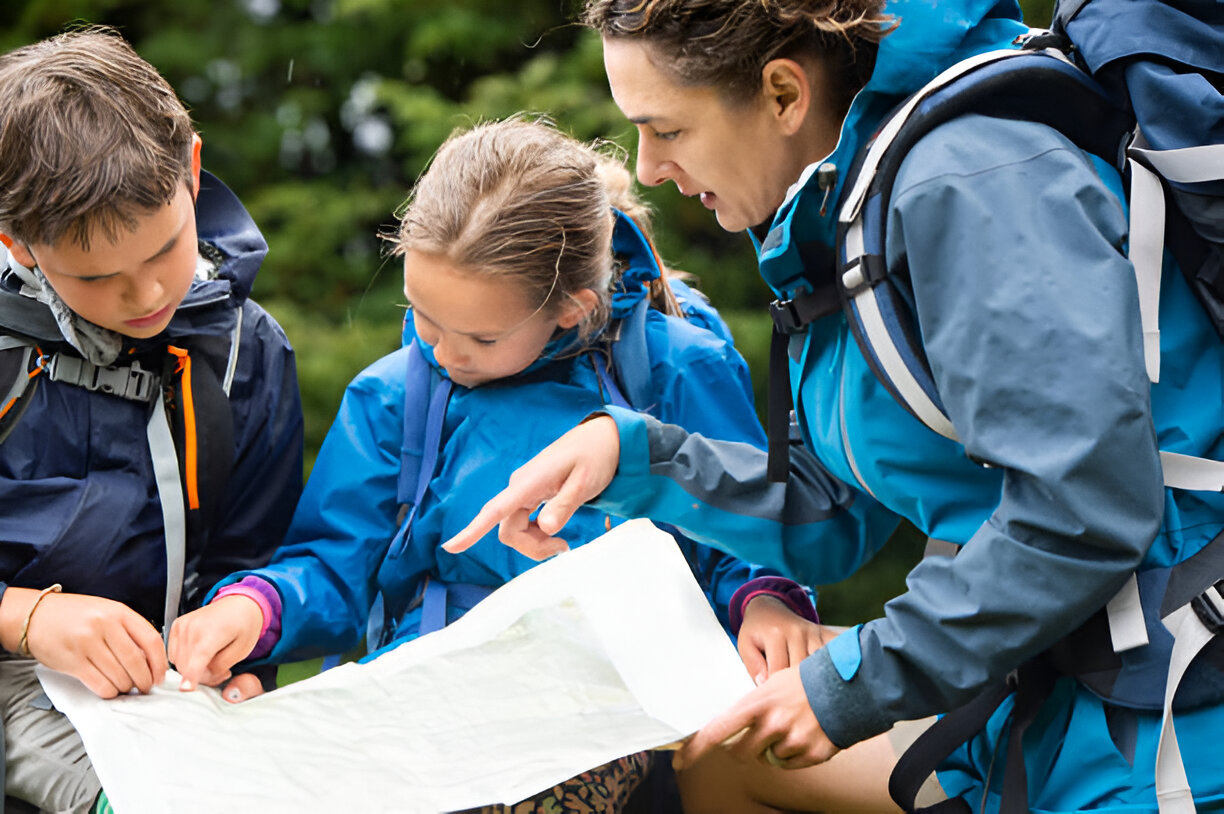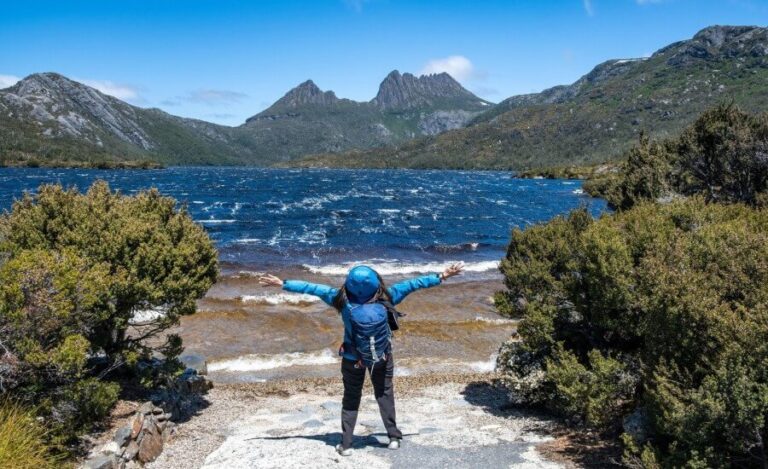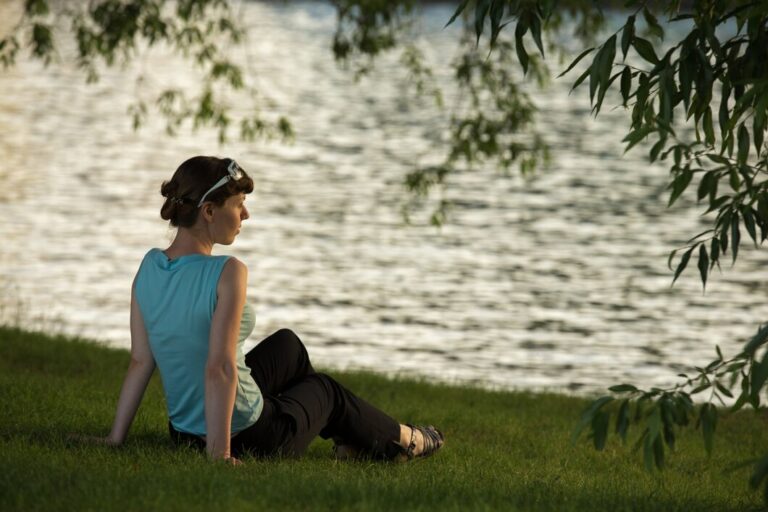
Picture this familiar vacation scene: you’ve arrived at a beautiful destination – a stunning beach, a majestic forest, a serene lakeside cabin. You’re hoping for quality family time, connection, maybe a dose of adventure. But instead, the kids are…glued to their screens. Tablets glow, game consoles beep, headphones create invisible walls. The breathtaking view outside the window goes unnoticed, the opportunity for shared exploration slipping away into a digital haze. It’s a frustrating reality for many parents, leaving us wondering how to break the spell and help our children experience the wonder that lies beyond the Wi-Fi signal.
The good news is, it’s entirely possible. Shifting towards Tech-Free Family Vacations: How to Get Kids Excited About Nature isn’t about deprivation; it’s about offering something far more enriching. It’s about intentionally creating space for connection – with each other, with the natural world, and with kids’ own innate curiosity. This guide offers practical strategies and mindful approaches to help you gently unplug your family vacation, navigate potential resistance, and ignite a genuine, lasting love for nature in your children, creating memories far more vivid than any screen can display.
The Screen Time Dilemma: Why Unplugging on Vacation Matters

In an age where screens are ubiquitous, consciously choosing to reduce or eliminate them during family vacations can feel like swimming against the current. Yet, the benefits of doing so, especially in a nature-focused setting, are profound, addressing growing concerns about the impact of excessive screen time on development and family dynamics.
Vacations offer a unique opportunity to break habitual patterns. At home, screens might be deeply ingrained in routines for entertainment, homework, or even pacification. A vacation provides a natural reset button, a chance to interrupt the dopamine loops fueled by games and social media and rediscover other ways of engaging with the world and each other. When screens are removed, space opens up – space for conversation, observation, imaginative play, and simply being together.
Furthermore, constantly mediating experiences through screens can dull our children’s (and our own) appreciation for direct, sensory reality. Capturing the ‘perfect’ photo can overshadow the feeling of the sun on skin or the sound of the wind. Relying on apps for identification can replace the rewarding process of learning through observation and guidebooks. Unplugging allows the real world, in all its unedited beauty and complexity, to take center stage. It encourages reliance on internal resources rather than external validation, fostering resilience and presence – essential life skills often underdeveloped in hyper-connected environments.
Beyond the Screen: The Developmental Rewards of Nature Time
Trading screen time for green time isn’t just about avoiding negatives; it’s about embracing a wealth of positives crucial for healthy child development. Nature is the ultimate playground and teacher, offering benefits that screens simply cannot replicate.
Physical Flourishing: Outdoor play is vital for physical health. It enhances motor skills (agility, balance, coordination), builds stronger muscles and bones, helps maintain a healthy weight by encouraging movement over sedentary screen time, and can even boost the immune system . Running, jumping, climbing, digging – these are the activities young bodies crave and need.
Cognitive Growth: Nature sparks curiosity and encourages problem-solving. Unstructured outdoor play fosters creativity as kids invent games and scenarios. Observing natural processes enhances reasoning skills and attention spans, Direct interaction with the environment provides rich sensory input crucial for brain development, far exceeding the limited sensory scope of a screen.
Emotional Well-being: Spending time in natural settings has a calming effect, reducing stress, anxiety, and fatigue, It provides opportunities for children to build resilience by navigating small risks, develop independence, and experience feelings of awe and wonder, which are linked to increased happiness and pro-social behaviour.
Social Skills Development: Outdoor play often involves interaction with peers or family members, fostering cooperation, communication, negotiation, and conflict resolution skills, Shared adventures create strong family bonds and lasting memories built on real-world experiences, not virtual ones.
A study highlighted by Stanford University showed a significant reduction in anxiety and depression symptoms among children who spend regular time outdoors,Providing ample nature time on vacation is an investment in your child’s holistic health.
Planting the Seed: Getting Kids Excited Before You Go
Successfully transitioning to a tech-free or tech-minimal family vacation starts long before you pack your bags. Building anticipation and involving kids in the process can make them partners in the adventure rather than resistant passengers.
Involve Kids in Planning: Instead of imposing a tech ban out of the blue, discuss the idea of a different kind of vacation. Look at maps together (physical ones!). Let them help choose activities based on their interests – hiking to a waterfall, exploring tide pools, learning to build a campfire, visiting a nature center. Giving them ownership increases buy-in. Research potential wildlife sightings together using books or limited, focused pre-trip web searches.
Set Clear Expectations (Early & Often): Communicate the tech rules well in advance. Will it be completely screen-free? Limited evening use? Emergency calls only? Be clear, consistent, and explain the ‘why’ – focusing on the positive experiences you’ll gain (more family time, cool nature discoveries, feeling refreshed). Avoid framing it solely as a punishment or restriction.
Build Nature Anticipation: Talk excitedly about the specific natural wonders you might encounter. Read books or watch documentaries (together!) about the destination’s ecosystem or animals beforehand. Get field guides, binoculars, or a magnifying glass as pre-trip ‘adventure gear’. Frame nature as the exciting destination, not the lack of screens.
Gradual Reduction (Optional): If your kids have very high screen time habits, consider gradually reducing access in the week leading up to the trip to ease the transition and minimize potential withdrawal drama
Focus on the Fun: Emphasize all the fun non-screen activities you’ll be doing – swimming, exploring, campfires, games, special treats. Make the alternative sound genuinely appealing.
Tech-Free Family Vacations: How to Get Kids Excited About Nature
Once you’re on vacation, the key is to create an environment rich with engaging, screen-free possibilities that tap into children’s natural inclinations for play, exploration, and discovery.
Make Nature the Playground: Active Exploration & Play
- Embrace Unstructured Play: Don’t overschedule. Allow ample time for kids to simply play freely outdoors – climbing rocks (safely!), splashing in streams, digging in sand, rolling down grassy hills. This is where imagination thrives.
- Go on Adventures, Not Just Walks: Frame hikes as ‘expeditions’ or ‘quests’. Give kids simple ‘jobs’ like being the navigator (with a map!), the snack keeper, or the wildlife spotter. Choose trails with interesting features – streams, bridges, big rocks, viewpoints. Focus on the journey, not just the destination
- Build Dens & Forts: Provide time and encouragement for kids to build simple shelters using fallen branches, leaves, or beach driftwood. This taps into primal instincts and encourages teamwork.
- Water & Mud Play: If appropriate, let them get wet and dirty! Puddle jumping, stream damming, mud pie making, or simply playing at the water’s edge offers immense sensory enjoyment.
- Classic Outdoor Games: Teach them games like tag, hide-and-seek, Red Rover, or capture the flag – simple, active fun requiring no equipment.
Ignite Curiosity: Observation & Discovery Tools
- Nature Scavenger Hunts: Create lists (picture-based for younger kids) of things to find – a specific type of leaf, a smooth stone, a feather, animal tracks, a certain colour flower. This focuses observation skills.
- Provide Simple Tools: Equip kids with magnifying glasses, binoculars, bug boxes, or nets (used respectfully). These tools encourage closer looking and make discovery exciting.
- Nature Journaling/Sketching: Offer blank notebooks and pencils/crayons. Encourage them to draw what they see, press leaves, write down observations, or create nature-inspired stories. Don’t pressure for perfection; focus on expression.
- Field Guides: Bring simple, picture-heavy field guides for local birds, insects, plants, or shells. Look things up together, fostering shared learning.
- Ask Curiosity-Sparking Questions: Instead of just naming things, ask open-ended questions: “What do you think made that track?” “Why do you think that leaf is shaped like that?” “What does that cloud look like to you”.
Foster Connection: Shared Experiences & Simple Rituals
- Campfire Magic: If possible and safe, have a campfire. Teach kids basic fire safety. Cook simple food together (s’mores, sausages). Tell stories, sing songs, or just watch the flames quietly.
- Stargazing: Away from city lights, lay out a blanket and look at the stars. Learn a few constellations together using a star chart. Talk about the vastness of space.
- Family Read-Alouds: Pack engaging chapter books to read aloud together in the evenings or during downtime.
- Shared Meals Outdoors: Picnics or simple meals cooked together outdoors feel special and encourage conversation without screen distractions. No phones at the picnic blanket!
- Sunrise/Sunset Watch: Make a point of watching the sunrise or sunset together, even just once. Share the quiet beauty of these moments.
Lead by Example: The Power of Parental Presence & Playfulness
Perhaps the most critical factor in a successful tech-free family vacation is your own behaviour. Children are highly attuned to hypocrisy. If you’re asking them to disconnect while constantly checking your own phone, the message won’t land.
Model Mindful Tech Use: Put your own phone away during family activities. Be fully present in conversations and explorations. If you need to use your phone for logistics or emergencies, explain why and keep it brief. Let them see you enjoying the unplugged experience.
Show Genuine Enthusiasm: Your attitude towards nature is contagious. Express your own wonder and curiosity. Point out things you find interesting. Get excited about finding a cool bug or identifying a bird call. If you treat nature exploration as fun, they are more likely to as well.
Participate Playfully: Don’t just supervise; join in! Build the fort with them, splash in the stream, get down on their level to examine a flower. Channel your inner child. Your willingness to play underscores the value of these activities.
Be Patient & Flexible: Nature based travel exploration with kids rarely goes according to a strict plan. Embrace detours, allow for slow pacing, and celebrate unexpected discoveries. Let go of adult agendas and timelines.
Your presence and genuine engagement are the most powerful tools you have to inspire your children’s connection with nature.
Navigating the Transition: Handling Resistance & Boredom Mindfully
Switching from high screen engagement to a tech-free environment can sometimes lead to resistance, complaints of boredom, or even withdrawal-like symptoms (moodiness, irritability). Handling this with empathy and consistency is key.
Acknowledge Feelings: Validate their feelings without giving in. “I know it feels boring right now because you’re used to your games. It takes our brains a little while to adjust. Let’s try. Avoid lectures or dismissiveness.
Have Alternatives Ready: When boredom strikes, gently redirect towards pre-planned or spontaneous simple activities. “Feeling bored? How about we see who can find the biggest leaf / skip stones / build a mini dam in this stream?”
Embrace ‘Positive Boredom’: Don’t feel obligated to entertain constantly. Allow for downtime. Explain that boredom is often where creativity and imagination start. Let them figure out how to entertain themselves with the resources around them (sticks, stones, their own minds).
Stay Consistent: Stick to the tech rules you established beforehand. Giving in reinforces the idea that complaining works. Consistency helps children adapt more quickly.
Focus on Connection: Often, cries of ‘boredom’ are bids for connection. Spend some one-on-one time, engage them in conversation, or start a simple shared activity.
Remember, the initial transition can be the hardest part. Patience, empathy, and a backpack full of simple, engaging alternatives go a long way.
Common Concerns & Solutions for Tech-Free Family Nature Trips

Parents often have valid concerns when planning unplugged nature adventures. Here’s how to address them:
Concern 1: “My kids will just whine and complain about being bored the whole time!”
- Solution: Prepare for some initial resistance (see section above). Front-load the trip with engaging activities. Involve them in planning. Set clear expectations. Most importantly, model enthusiasm and presence yourself. Often, once kids get genuinely engaged in a nature activity, the boredom fades quickly.
Concern 2: Safety in nature – weather, injuries, getting lost.
- Solution: Choose locations and activities appropriate for your family’s skill level. Check weather forecasts and pack accordingly (layers, rain gear). Carry a well-stocked first-aid kit and know basic first aid. Bring a physical map and compass (and know how to use them, at least basically) even for familiar trails. Teach kids basic safety rules (staying on paths, what to do if lost, wildlife awareness).
Concern 3: What do we do on rainy days without screens?
- Solution: Pack analog rainy-day activities: books, travel board games, card games, drawing/craft supplies. Embrace the weather if it’s just light rain – puddle jumping with rain boots can be great fun! Visit covered nature centers or local museums if available. Tell stories, build an indoor fort, bake together if you have facilities.
Concern 4: All their friends have devices on vacation; they’ll feel left out.
- Solution: Acknowledge their feelings but hold your ground on your family’s choices for this trip. Focus on the unique, fun experiences they are having. Remind them this is a special ‘unplugged adventure’ time for your family. The strong positive memories created often outweigh temporary feelings of missing out.
Before You Go Checklist: Tech-Free Family Nature Trip
Set your family up for unplugged success with this checklist:
- Involve Kids in Planning: Discuss destination/activities, look at maps/books together.
- Set Clear Tech Expectations: Define rules beforehand (when/if devices allowed, parent modeling).
- Pack Nature Exploration Tools: Magnifying glass, binoculars, bug box, kids’ field guides, nature journal/sketchpad, pencils/crayons.
- Analog Entertainment: Books (for read-alouds & individual reading), travel board games, card games, activity books.
- Outdoor Gear: Weather-appropriate clothing/layers, rain gear, sturdy shoes, sun hats, sunscreen, insect repellent (consider natural options).
- Navigation (Analog): Physical map of the area, compass (optional, but good practice).
- Safety Kit: Well-stocked first-aid kit, whistle, emergency contact info.
- Snacks & Drinks: Plenty of water (reusable bottles!), easy-to-eat snacks (in reusable containers).
- Comfort Items: Familiar blanket, stuffed animal, or pillow for younger kids.
- Parental Mindset: Pack patience, flexibility, enthusiasm, willingness to play, and commitment to being present yourself!
- Leave Behind (Mentally & Physically): Unrealistic expectations, rigid schedules, non-essential electronics, work worries.
Growing Connections, One Adventure at a Time
Choosing a tech-free family vacation focused on nature is more than just a trend; it’s a conscious investment in your children’s well-being and your family’s bond. It’s about intentionally stepping away from the digital noise to create space for the quieter, richer experiences that foster curiosity, resilience, and a deep appreciation for the natural world. While navigating the initial transition might require patience and creativity, the rewards – engaged children, shared laughter, genuine discoveries, and strong family connections – are immeasurable and lasting.
You’ve explored why unplugging matters, discovered the profound benefits of nature time for kids, gathered practical strategies for sparking excitement and managing resistance, and recognized the crucial role of your own presence. Remember, it doesn’t need to be an elaborate, expensive wilderness expedition. A simple camping trip, a cabin rental near a park, or even focused exploration of your local natural spaces can be the setting for powerful nature reconnection.
Are you ready to trade screen time for sunshine, virtual worlds for real adventures, and digital distraction for deep family connection? Plan a small tech-free nature escape for your next family break. Involve your kids, embrace simplicity, lead with enthusiasm, and watch as their innate curiosity and love for the natural world ignites. The memories you create together, unplugged and exploring, will be the ones that truly endure.






